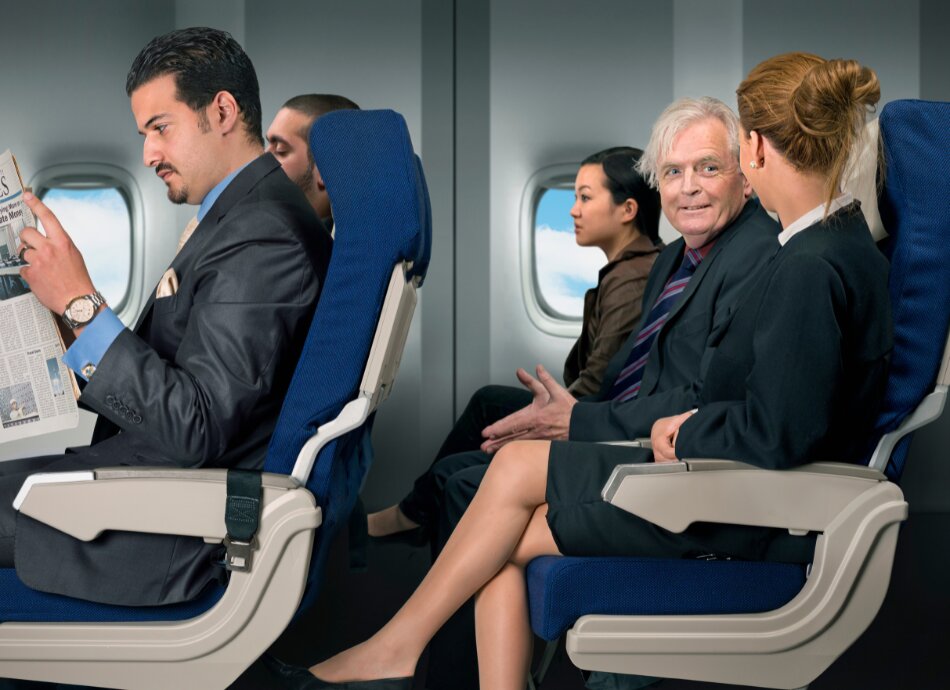If you're a frequent visitor to Healthify, why not share our site with a friend? Don't forget you can also browse Healthify without using your phone data.
Travel health tips
Key points about travel health
- Wherever your travels take you, be prepared when it comes to your health – before, during and after travelling.
- While most travel-related illnesses are minor, early planning means you can protect yourself from sickness and be prepared if you do become unwell.
- Make sure you visit your healthcare provider or a travel health specialist 3 to 6 months ahead of your trip. They can give you specific travel advice, such as what immunisations are required, based on where you are going.
- If you already have any health issues, extra care is needed around medications, travel insurance and planning for common scenarios.

Check your destination(external link) for country-specific health risks and safety concerns.
Video: Travel health and safety
The following video highlights some key points to consider before leaving to reduce your risk of getting sick while away. It may take a few moments to load.
(New England Journal Medicine Video Channel, US, 2016)
Visit your medical centre or travel medicine clinic early (3 to 6 months before leaving on your trip) to check what vaccinations or medicines you need. You may need more than one dose weeks or months apart. Some countries legally require travellers to have certain vaccinations, eg, for yellow fever.
Travel health consultations often need a double appointment, and it's likely you'll be asked to fill in a questionnaire about where you are going and what you're planning to do before your appointment. Different activities have different risks. Travel vaccines are not funded by the government and some are expensive.
Yellow fever vaccines can only be given at accredited clinics. If you know you are going to need one (if you're going to some places in Africa or South America), make sure you make your appointment at a clinic which has this accreditation.
Read more about vaccinations for international travel.
Take a travel first-aid kit so you can manage simple cuts, grazes, tummy bugs and minor ailments yourself. Seek advice from a pharmacist (or during a travel health consultation) if you're not sure what to take.
Depending on your destination you may also want to pack insect repellent, alcohol-based hand sanitizer, sunscreen, sunglasses and a wide brimmed hat.
 Image credit: Canva
Image credit: Canva
There are some health conditions where travelling isn't advisable. The following guide on health status for travel has been created by the Centers for Disease Control and Prevention (CDC).
If you have any concerns about your health and are unsure about whether you should travel, talk to your healthcare provider. They will help you assess your situation and help you decide whether to postpone your trip.
In general, you should not travel by air if you:
- Will be taking a baby less than 48 hours (2 days) old.
- Have passed 36 weeks of pregnancy (or 32 weeks if you are carrying twins, triplets, etc). Read more about travelling while pregnant(external link).
- Have recently had any type of surgery, especially stomach, brain, eye, or orthopaedic (bone and joint) surgery. Check with your healthcare provider to see when it is safe for you to travel.
- Have had a recent stomach, eye, or head injury. Get advice on when it is safe for you to travel.
- Have had a recent heart attack or stroke.
- Are suffering from:
- chest pain
- any infections that you can easily spread to other people (eg, see vaccine preventable diseases)
- swelling of the brain caused by bleeding, injury, or infection
- severe sinus, ear, or nose infections
- severe chronic respiratory diseases, breathlessness at rest, or a collapsed lung
- sickle cell disease
- psychotic illness except when fully controlled.
- Have a fever of 38° C or greater AND one or more of the following:
- obvious signs of illness such as severe headache, weakness, skin and eyes turning yellow
- skin rash
- shortness of breath or difficulty breathing
- persistent, severe cough
- confusion, especially if it has just started
- bruising or bleeding (without previous injury)
- diarrhoea (runny poos) that does not go away
- vomiting that does not go away (other than motion sickness).
Learn more about conditions requiring medical clearance.(external link)
- If you have any concerns about your health and are unsure about whether you should travel, talk to your healthcare provider.
- Talk to them about ways you can manage your condition while travelling. Have a plan in place to deal with any health concerns and make sure you have a sick day plan in case you do become unwell while you're away from home.
- Make sure you pack enough of any medications you need for your medical conditions. Take enough to last your entire trip, plus extra in case of travel delays.
- It's a good idea to take a list of the medicines you are taking and write on it anything you are allergic to.
- Find out if the airline you are travelling with, or the country you are visiting, requires you to carry a letter from your doctor detailing your medical requirements or conditions.
- Consider carrying a medical alert bracelet or pendant for specific conditions.
Check if your insurance covers medical care abroad. Make sure it covers your personal circumstances, both for pre-existing conditions and the activities you plan to undertake. Talk to your insurance provider about the details of your policy before you travel. In many countries, healthcare isn't free for travellers and the New Zealand government is unable to fund medical costs or medical evacuations for Kiwis who travel or live overseas.
When you sit still for long periods of time – such as when you’re travelling – you increase your risk of blood clots. Read about travel-related clots including how to prevent them.
Some people may need to take extra care in considering travel or preparing for travel. If you find yourself in one of these categories, it is important to make sure the doctor advising you knows about your needs.
Travelling when you're pregnant
If you're pregnant, consult with both your lead maternity carer and a travel medicine doctor before making any travel decisions. Depending on your stage of pregnancy, pre-existing medical conditions, and travel plans, you may want to take additional precautions or even postpone your trip. For example, if you're pregnant and have a serious pre-existing medical condition, it may not be wise to travel to developing countries. In general, the safest time for a pregnant person to travel is during the second trimester (18–24 weeks). If you're in your third trimester, you should typically plan to stay closer to home to guarantee access to medical care if problems arise, such as high blood pressure, swelling, or going into labour 3 weeks or more before your due date (premature labour).
Travelling with babies and small children
Traveling with children will require extra thought and planning. Many travel-related vaccinations and preventive medicines that are used for adults are not recommended for young children. Talk with your child’s doctor about your travel plans. They can give you recommendations on which vaccines or medicines are safe for your child. You may also want to consider bringing your child’s car seat, as the availability and quality of such seats abroad may be limited. You can learn more about this topic from the section traveling safely with infants and children.
Learn more about flying with children and infants. (external link)
Travelling with a disability
Generally, travellers with stable, ongoing disabilities should prepare for an international trip in much the same way as anyone else would. However, if you have a disability and are planning an international trip, you should take some extra steps to ensure a safe and accessible trip.
- Consult with your travel agent or tour operator and make sure that resources are available to meet your needs.
- See a travel medicine doctor, or a healthcare provider familiar with travel medicine, 3 to 6 months before you leave. They will tell you which vaccines or medicines you will need and give you additional recommendations that fit your needs.
- Research the resources available to people with disabilities in your destination.
Learn more about flying with a disability.(external link)
Travelling with a weakened immune systems
If your immune system is weakened from cancer, chemotherapy, medicines, or HIV/AIDS, talk to your doctor about the details of your travel plans. There may be added risks related to travel.
- If your current medical status is unstable or puts your health at serious risk, it may be recommended that you not travel or postpone your trip until you can travel more safely.
- Even if you can travel, you may or may not be able to have certain vaccines or take medications that are normally recommended for your destination or they may not be as effective.
- If you do get sick while traveling, your illness may be more severe or you may have added complications to your existing condition. Make sure that you fully understand all the risks involved with your travel plans and any ways to protect your health that your doctor recommends before you go.
Learn more about travelling when immunocompromised(external link).
The most common travel-related illnesses are gastrointestinal diseases. If you're not sure about the level of hygiene where you're travelling only eat thoroughly cooked food. Only drink well sealed drinks and avoid ice in your drinks.
 Image credit: Canva
Image credit: Canva
Raw foods
Avoid eating raw foods. Fruits or vegetables may be safer to eat if you can peel them yourself or wash them in bottled or disinfected water.
- Stay away from cut-up fruit or vegetables. They may have been contaminated during preparation.
- Avoid eating fresh salads, even if finely cut or shredded. They may be contaminated with human or animal waste that even clean water can’t wash off.
- Avoid fresh salsas, condiments, and other sauces made from raw fruits or vegetables.
- Avoid eating raw meat or seafood, including items 'cooked' with citrus juice, vinegar, or other acidic liquid (eg, ceviche).
Find out more on the CDC's food and water safety(external link) page.
Diseases can be picked up overseas but symptoms may not appear until touching down in Aotearoa.
Some tropical diseases and infections can become serious quite quickly and may be life threatening. Read about what to do if you become sick within a month of arriving or returning home.
Travellers' Health(external link) Vaccines, Medicines, Advice, Centre for Disease Control and Prevention, US
Highly pathogenic avian influenza(external link) Health New Zealand | Te Whatu Ora
Avoiding bug bites while travelling(external link) Health New Zealand | Te Whatu Ora
Bed bugs(external link) Health New Zealand | Te Whatu Ora
Food and water-borne diseases(external link) Health New Zealand | Te Whatu Ora
Travel and blood clots(external link) Health New Zealand | Te Whatu Ora
Flying when pregnant(external link) Air New Zealand
Pregnant travelers(external link) CDC, US
Resources
Safe Travel NZ is a website with a wide range of resources and advice from the NZ Government agencies for New Zealanders travelling overseas. Below are some resources from Safe Travel NZ.
- Staying healthy while travelling(external link)
- Travel advisories by destination(external link)
- Quick checklist and tips(external link)
- Travel advisory risk levels(external link)
- Travel insurance(external link)
- Travelling with children(external link)
- When things go wrong(external link)
- Contacting NZ Embassies (external link)
References
- Travelling(external link) Health New Zealand | Te Whatu Ora
- Safe travel NZ(external link) Safe travel NZ
- Travel health(external link) Centers for Disease Control and Prevention, US
- Think about your health status(external link) Centers for Disease Control and Prevention (CDC), US
- Food and water safety(external link) Centers for Disease Control and Prevention, US
Credits: Healthify editorial team. Healthify is brought to you by Health Navigator Charitable Trust.
Reviewed by: Dr Emma Dunning, Clinical Editor and Advisor
Last reviewed:





